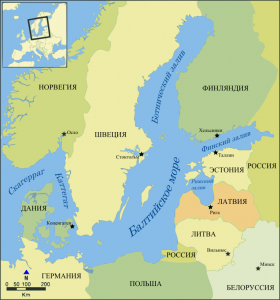I enjoyed One Human Minute by Stanislaw Lem, but not excessively. It’s written in Polish, translated into English, with just a slightly halting gait as a result. And although the book is chock full of intriguing ideas, so is it with $5 words and concepts, making it a bit of a slog at times. That said, it’s a thought provoking little book and not unreadable.
The title essay, “One Human Minute,” is Borgesian in that it is a review of a fictional — that is, non-existent— book, and hence is itself a work of fiction in non-fictional form. As the title implies, the ‘book’ of the same title is an account, in actuarial style, of everything that happens on earth in one minute’s time. It is quite horrific, according to Lem. When you see man’s acts, collective, counted, and reported, they do not make a pretty picture. But that isn’t even the point. The real point is that people who can be identified and sorted into buckets by type, can also be predicted by those who do the sorting.
“Dostoevsky believed that we were threatened by scientifically proven determinism, which would toss the sovereignty of the individual—with its free will—onto the garbage heap when science was capable of predicting every decision and emotion like the movements of a mechanical switch.”
– Lem, “One Human Minute”, p. 19
According to Lem, Dostoevsky saw madness as the only avenue of escape, sort of like Jack Nicholson’s character in Catch 22.
In fact, Lem thought 19th century determinism was dead, but unfortunately, he was wrong; that future is already here. Big tech, and social media in particular, have used behavioral science (Pavlov’s dog) to both condition and predict our behavior. We have no sovereignty, no personal freedom, we do and think as we’re told and enforce the same on our fellows. It’s the modern, socially-required mode of life. It seems so natural to us, we don’t even think to question it or know it’s there. But it is and it has extinguished even the desire for free will. Like the Little Green Men (LGMs) in Toy Story, we can’t function without the Unimind. “The Claw!”
Back in Lem’s book, we move on to modern weapons systems in “The Upside Down Evolution.” Here Lem talks about smart and self-guided (even self-targeting) missiles and other weaponry that will dominate warfare in the present future until there’s no more point to having wars, or we destroy ourselves, whichever comes first. Lem doesn’t actually say that but it appears to be the dominant subtext, although the matter-of-factness of his tone might cause you to think otherwise.
“…There is no way of testing a system designed to wage global nuclear war, a system made up of surface, submarine, air-launched, and satellite missiles, antimissiles, and multiple centers of command and communications, ready to loose gigantic destructive forces in wave on wave of reciprocal atomic strikes.”
– “The Upside Down Evolution,” p.44
Given the above conundrum, Lem’s future humans create a slew of slightly less deadly but still insidious weaponry — micro-weapons for instance, or search and destroy missiles that operate autonomously forever. As he proceeds with his litany of horrible inventions, some of which probably exist now, we are left with the impression, no doubt intended, that war is absurd, not to mention barbaric and wasteful, and there is no reason for intelligent people in a modern society to wage it.
In his final essay, “The World as Cataclysm,” Lem asserts that it is only through catastrophe that material progress is made. From a naked arm of the Milky Way to our Solar System, and from dinosaurs to man, it took catastrophes in each case to bring on the transition. In the case of our solar system, it was a rogue supernova, while in the case of Homo sapiens, it took a meteor the size of Cincinnati to kill off the dinosaurs and leave room for tiny mammals to evolve.
In other words, says Lem, “…the world is a group of random catastrophes governed by precise laws.”
In that this creative destruction is both catastrophic and random, there isn’t much more to say. And so, given that it is two days after Election Day 2024, we will leave it at that. Isn’t futurism fun?
Photo credit: Nick / from United Kingdom, CC BY 2.0 <https://creativecommons.org/licenses/by/2.0>, via Wikimedia Commons











